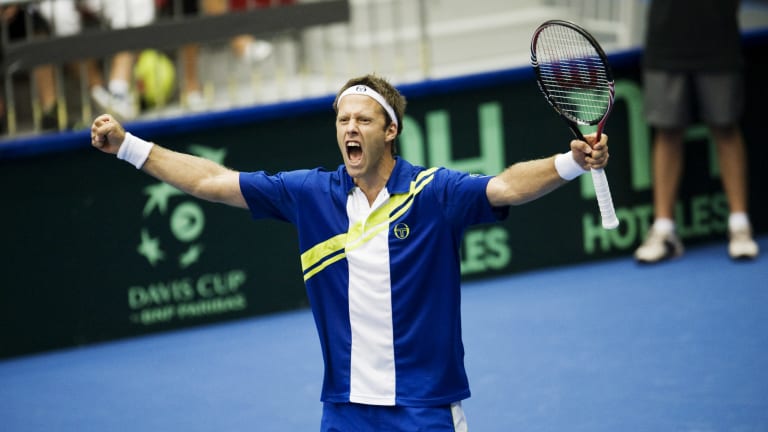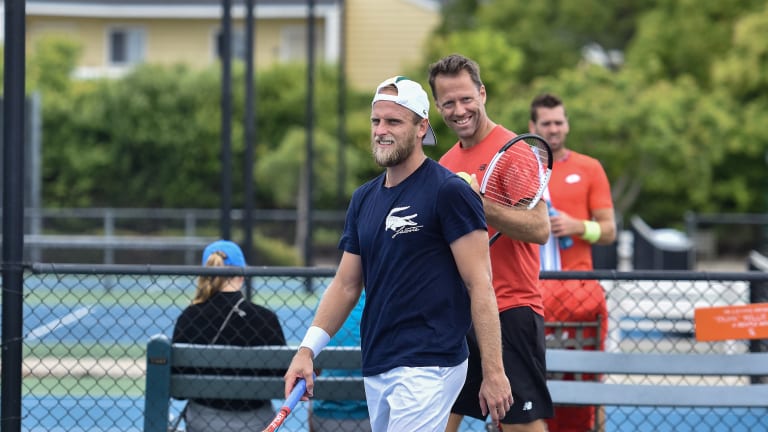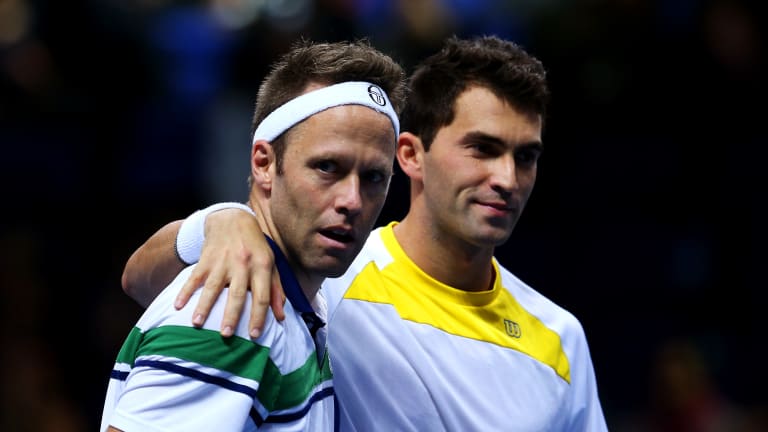For those who’ve seen Robert Lindstedt on a tennis court, there’s one common takeaway from watching him play: the dude has a full tank of passion.
An energetic character who’s never been afraid to express how he’s feeling whether on a high or a low, Lindstedt enjoyed a stretch of 13 seasons with at least one ATP doubles title to his name. Gusto led him to his greatest triumph at the 2014 Australian Open alongside Lukasz Kubot after putting a run of three successive Wimbledon runner-up finishes with Horia Tecau in the rear-view mirror.
Lindstedt also represented Sweden in Davis Cup over 13 different years, including 10 in a row from 2007-16. Taking the torch from mentor Jonas Bjorkman, he went 16-6 in doubles for his nation. Lindstedt’s passion for his country and the team competition were the impetus to keep going in 2021, after a shoulder injury confirmed his appetite for tour life was no longer present.
At 44, the Sundbyberg native called it a career at the Davis Cup Finals in Madrid earlier this month. In this TENNIS Conversation, Lindstedt discusses arriving at the decision, how he came to coach Denis Kudla, fighting his innate “lazy” personality and impact of becoming a father.
After Sweden’s Davis Cup run ended, how was the flight back to Florida? Emotional? Normal?
LINDSTEDT: There's a lot of thoughts, there's a lot of emotion involved. The flight itself was the main concern, just finding one to get me back.
On the flight itself, it wasn't that bad because then it was more the excitement of seeing my wife and my son. So there was mostly joy of getting back home to Miami. I’ve known that this was coming all year and prepared myself for it.
It feels like you’re more than at peace with your decision. Was there a moment when you knew, this isn’t for me any longer?
LINDSTEDT: To be honest, I haven't missed competing. I had a shoulder injury for over a year. When I had an MRI in February this year, they told me I had two tears, needed surgery for one. I can rehab it and maybe last a few weeks.
Knowing that I was not going to compete for at least six months, I slept that night until the alarm rang the next day for the first time in 20 years. So I realized right there I need to stop doing this. It's taken too much of a toll on me. So I made the decision then this is the last time I'm going to push as hard as I can to make Davis Cup.


